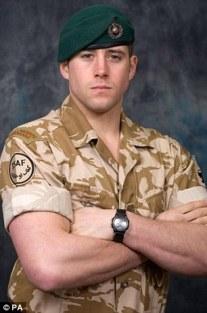One of the constant fear in life is the uncertainty – of existence, healthy existence and sustenance of living in the way that one present lives. Most fear life or ‘death’ and are worried about providing financial security to their beloved family, in case of their untimely death. Life Insurance i.e., insuring one’s life is the ready-made answer. The purpose of taking a life policy is securing one’s future, that of providing survivor benefits for designated beneficiaries in the eventuality of death. The proceeds of a Policy can help the family meet the financial needs previously covered by the income. Life insurance is a contract between an insurance policy holder and an insurer, where the insurer promises to pay a designated beneficiary a sum of money (the "benefits") upon the death of the insured person. Depending on the contract, other events such as terminal illness or critical illness may also trigger payment. The policy holder typically pays a premium, either regularly or as a lump sum. A Policy holder gets "peace of mind", in knowing that the death of the insured person will not result in financial hardship for loved ones.
The beneficiary receives policy proceeds upon the insured person's death. The owner designates the beneficiary, but the beneficiary is not a party to the policy. The owner can change the beneficiary unless the policy has an irrevocable beneficiary designation. In simple words such designation of the beneficiary to receive proceeds under a policy is known as ‘Nominatio’. Nomination is a right conferred on the life insurance policyholder to appoint a person or persons to receive the policy monies in the event of the policy becoming a claim by death. Any policyholder, who is a major and the life insured under a policy, can make a nomination. While nomination is an authorisation to receive the policy monies in the event of death of the life assured, it does not give the nominee an absolute right over the money received to the exclusion of other legal heirs. Further, the nomination can be revoked or cancelled at any time during the lifetime of the policyholder at his will and pleasure or by a subsequent assignment.
Subject to the provisions contained in Section 39 of the Insurance Act, 1938, there are no restrictions on the policyholder regarding changing his nomination at any point of time, any number of times. There can be successive nomination also – i.e., one can state that money should be paid to nominee A; failing him, to nominee B; failing whom, to nominee C, etc. Such a nomination is treated in favour of one individual in the order mentioned and is acceptable in law.
Nomination in favour of a stranger is not accepted as there would be conflict of insurable interest. Again nomination as a class is not considered valid. Instead of the relationship, the names and address providing identification needs to be provided. However, it not the blood relations like Father, Mother, Wife, Children, brother, sister alone who are to be nominated, though in majority cases they would be the nominees. Individuals or groups of persons other than the ones defined under Trust nomination can also be made nominees. In Indian parlance, nominating friends could be extremely rare.
In this background read this newsitem in Daily Mail captioned ‘the most generous Marine’ – the deed of a soldier who left £100,000 for pals' dream holiday after being blown up by IED while on foot patrol in Afghanistan. It is the sad story of David Hart, a Mariner who died the day before his 24th birth day. The serviceman, from 40 Commando, was blown up an IED in Sanguin, southern Afghanistan, while on foot patrol in July 2010.

He had taken £250,000 life insurance policy and had stipulated that in the event of his getting killed in action, £100,000 of his should be used by his 32 friends to go to the U.S., his family confirmed in private. He also left £50,000 to a charity to help injured marines. Marine Hart's friends were inundated by dozens of Sin City hotels and casinos, who insisted on giving them VIP treatment for free, after hearing about the heroic soldier's last wish. His best friend is quoted as saying that David had spoken of this and some of he lads who hadn’t been to Vegas before couldn’t believe what it was like. He said ‘Thanks to Dave’s generosity we’ve all had a holiday none of us will ever forget.' Marine Hart’s friends went on that holiday last summer, and at his inquest one of his colleagues who saw the explosion paid tribute to him at the inquest.
The court heard that Marine Hart, from Poppleton, York, who was part of a team training Afghan police, was on a joint foot patrol with ten British soldiers and 13 Afghan soldiers. They were going to talk to some locals when a bomb went off in a wadi, or valley, near their base. They were travelling in an 'Afghan snake', a single file line with the Afghan soldiers up ahead, the court heard. Three metal detectors were being used to clear a path away from any explosives but none were discovered - until the explosion killed Marine Hart. Unfortunately Marine David Hart walked across it and it was his footstep that triggered the IED (improvised explosive device).'
Sad is the death – but even in his death, he had brought cheers to his friends………
With regards – S. Sampathkumar.
17th Feb 2012.

